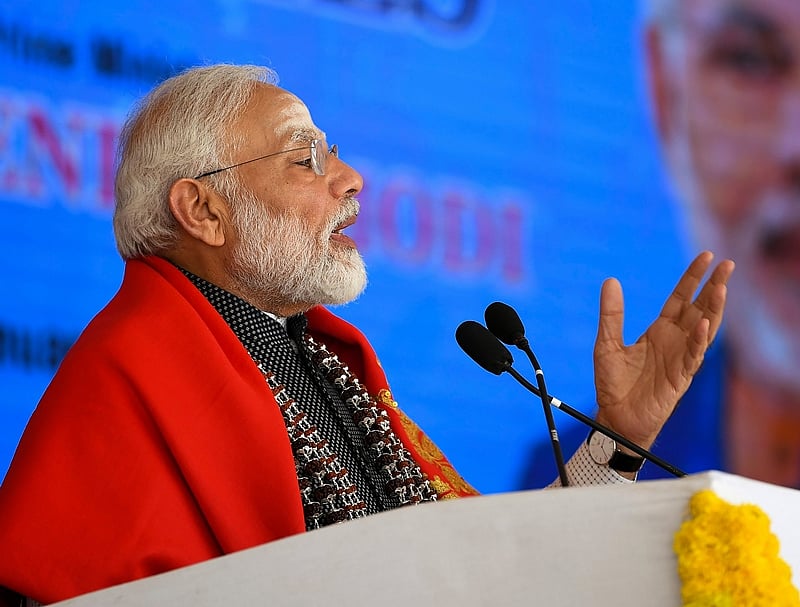Change in the citizenship law and the widespread protests that followed have dented India’s image in the democratic world. Whether the concern stemmed from a gross misunderstanding of the objective behind the new law, or the widespread anger of the 20-crore Muslim minority swayed the international opinion is not clear.
It is possible both factors played a role in mold. In particular, in the neighbouring countries there was disquiet about the new citizenship law. Predictably, Pakistan reacted in a hostile manner, calling the new law an attack on minorities and a part of the continuing process of demonising the Muslims as per the Hindu Rashtra goal of the RSS-BJP.
Given that it had most vociferously tried to internationalise the change in the status of Jammu and Kashmir from a State into two Union Territories, even talking of a nuclear option, its reaction against the change in the citizenship law was not unexpected.
Besides, the new law clearly implied that religious minorities in Pakistan are routinely persecuted and justify grant of fast-track citizenship by this country.
Bangladesh, the second country from where the persecuted religious minorities are to be given special protection under the new law, too, was dissatisfied.
Despite friendly ties between the two countries since Sheikh Hasina took over as prime minister, the authorities in Dacca perceived the new law to be unfriendly and an attempt to humiliate Indian Muslims. Two senior Bangladesh ministers cancelled their scheduled visit to India following the passage of the new citizenship law in Parliament.
In the above backdrop, Prime Minister Modi’s initiative in reaching out to the leaders of the neighbouring nations, barring Pakistan, ought to be welcome.
On the first day of 2020, the PM talked to Sheikh Hasina on phone, extending customary new year greetings to her and the people of Bangladesh, congratulating her on her re-election as President of the ruling Awami League.
The exchange of pleasantries between the two leaders at a time the issue of Bangladeshi infiltrators in Assam and elsewhere in the country is in headline news is significant.
Modi’s conversation with his Bangladesh counterpart ought to help reassure Dacca that the new citizenship law was not directed against the three specific countries but merely sought to provide faster citizenship to persecuted minorities already in India before end-2014.
Likewise, the PM greeted his Nepal and Sri Lanka counterparts, promising to build on the good bilateral relations with each country and to resolve differences through early talks.
Modi also spoke to the Bhutan King Jigme Khesar Namgeyal Wangchuk and Maldives President Ibrahim Solih, greeting them on new year and hoping to further strengthen warm ties between the respective countries.
Notably, the new citizenship law was never mentioned in his conversation with the leader of any country he spoke to on Wednesday, yet formed the unspoken background. Modi’s effort to reach out to the neighbouring countries is well-conceived.




